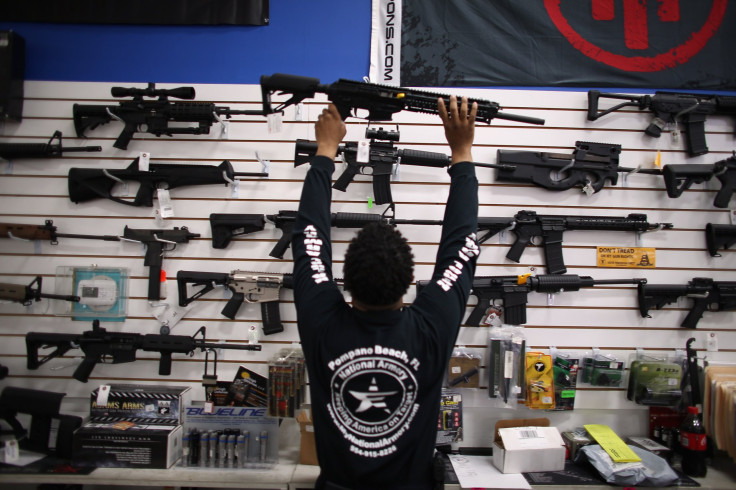Gun Ownership By Country 2015: US Ranks First As Obama Calls For 'Common Sense' Laws

Hours before a mass shooting at a movie theater in Lafayette, Louisiana, President Barack Obama said Thursday that his biggest frustration has been his inability to pass stricter gun laws. "If you ask me where is the one area where I feel that I have been most frustrated and most stymied, it is the fact that the United States of America is the one advanced nation on Earth in which we do not have sufficient, common-sense, gun safety laws," Obama said, as CNN reported. "Even in the face of repeated mass killings."
Compared to other nations, the United States does have relaxed gun laws, multiple studies show. Even after mass killings at movie theaters, churches, military facilities and elementary schools in recent years, the U.S. has yet to impose stricter gun restrictions. In some states, lawmakers are working toward weakening gun control laws.
Although the U.S. accounts for less than 5 percent of the world’s population, it accounts for 35 to 50 percent of the world’s civilian-owned guns, according to a 2007 report by Switzerland's Small Arms Survey, the Council on Foreign Relations reported. Overall, the U.S. has the highest gun ownership rate in the world, with 270 million civilian guns, the Washington Post reported. India comes in second place with 46 million total civilian guns.
The U.S. also has the highest homicide-by-firearm rate among the world’s most developed nations. Roughly 67.5 percent of homicides in the U.S. are committed using guns, accounting for 9,960 total homicides by guns. In India, only 7.6 percent of homicides are committed with guns.
In the U.S., federal law sets the minimum standards for firearm regulation, but individual states have their own laws. The federal Gun Control Act of 1968 prohibited the sale of firearms to minors, people with criminal records and the mentally disabled, among others. The Brady Handgun Violence Prevention Act in 1993 -- named for James Brady, a former White House press secretary who was shot and seriously wounded during a 1981 assassination attempt against President Ronald Reagan -- amended the law and required background checks for all unlicensed people purchasing firearms from a federally licensed dealer. There are currently no federal laws that ban semiautomatic assault weapons, military-style .50-caliber rifles, handguns or large-capacity ammunition magazines.
72 mass shootings in the U.S. since Sandy Hook in 2012. Please, PLEASE realize the importance of gun control. _ pic.twitter.com/99rmfM2wVc
— kitty ♡ (@mollykittencat) July 24, 2015After mass killings in other advanced nations, many governments moved swiftly to impose tighter gun restrictions. In Australia, after the Port Arthur massacre in 1996, in which a gunman killed 35 people, a law was imposed that stiffened licensing and ownership rules and established a temporary gun buyback program that took 650,000 assault weapons out of public circulation and required licensees seeking a gun to require a “genuine need” for the firearm. In Britain, lawmakers dramatically tightened gun regulations after the 1987 Hungerford massacre, in which a gunman on a six-hour shooting spree killed 16 people. The country’s new gun restrictions expanded the list of banned weapons and increased regulation requirements for other weapons.
Japan, which has the lowest homicide rate in the world, has tight gun regulations, as well. The only guns permitted are shotguns, air guns, guns that have research or industrial purposes, or guns used in competitions. In order to obtain one of these guns, a person must pass written, mental and drug tests, as well as a thorough background check.
"The United States does not have a monopoly on crazy people,” Obama said in 2014, Newsmax reported. “It's not the only country that has psychosis. And yet we kill each other in these mass shootings at rates that are exponentially higher than anyone else. Well, what's the difference? The difference is that these guys can stack up a bunch of ammunition in their houses, and that's sort of par for the course."
© Copyright IBTimes 2025. All rights reserved.






















